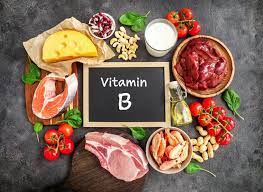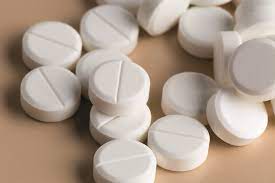Vitamin B12 (aka cobalamin) – if you haven’t heard of it yet, some might assume you live under a rock. Truthfully, you’re probably familiar with the supplement, but have questions. And rightfully so – based on the buzz it receives, B12 may seem like a cure-all “miracle supplement” for everything from depression to weight loss. While it’s not typically this miraculous, many people (and their doctors) find vitamin B12 to be the missing piece in their wellness puzzles. In fact, they often live with tell-tale signs of vitamin B12 deficiency without even realizing it.
One reason vitamin B12 is often seen as a total-body magic remedy is because of its role in diverse bodily functions. From DNA and red blood cell production to stress reduction and sleep improvement, this water-soluble B-vitamin is highly involved in our day-to-day functioning.
Although our bodies don’t naturally produce the B-vitamins we need, there are several animal- and plant-based sources of vitamin B12, not to mention supplements like vitamins and shots.
A diet that meets the recommended daily values of vitamin B12 likely includes animal products like meat, fish, poultry, eggs, and dairy. With such an animal-heavy diet, it’s no surprise that vegetarians and vegans commonly have low B12 levels.
Plant-based sources include fortified cereals, plant milk, and bread, as well as nutritional yeast and other fermented foods that contain vitamin B12.
While dietary sources can provide the 2.4 micrograms per day of vitamin B12 that most adults need to function optimally, supplements are often needed among certain populations. As we age, change our diets, and treat other ailments, we may become susceptible to vitamin B12 deficiency without knowing it.
Unfortunately, our bodies are not able to produce vitamin B12 on their own. Getting the recommended 2.4 micrograms per day can be difficult, especially if your body has trouble absorbing the vitamin. For example, our bodies struggle to absorb vitamin B12 as we age, making B12 deficiency a growing concern among the elderly.
In 2014, the National Health and Nutrition Examination Survey estimated that vitamin B12 levels are “seriously low” among 3.2% of adults over age 50. And as many as 20% of this aging population may have a borderline vitamin B12 deficiency. Similar results appear when our bodies undergo other types of changes.
Thanks to vitamin B12’s role in a variety of bodily functions, signs of its shortage may seem sporadic. They may seem odd. Disconnected. Minorly annoying. Maybe even “not that bad.”
Knowing these signs of vitamin B12 deficiency can help you identify issues to bring up with your doctor that you otherwise may not have mentioned.
1. Anemia
2. Pale Skin
3. Numbness/Tingling in the Hands, Legs, or Feet
4. Difficulty Balancing
5. Oral Pain
6. Memory Loss & Trouble Reasoning
7. Accelerated Heart Rate
8. Dizziness & Shortness of Breath
9. Nausea, Vomiting, and Diarrhea
10. Irritability & Depression
Since your body doesn’t make vitamin B12, you have to get it from animal-based foods or from supplements. And you should do that on a regular basis. While B12 is stored in the liver for up to five years, you can eventually become deficient is your diet doesn’t help maintain the levels.
Thanks to modern technology, you can obtain necessary vitamin B12 based on your needs at any time via vitamin supplements. Vitamin and Minerals Tablets are a good resource to not only provide you with essential vitamin B12 but also contain other vitamins and nutrition to support your health. To use these medications, you can consult a physician or your family doctor to assist you with your daily intake. With unremitting effort into keeping a healthy diet and using vitamin supplements with care, your body will stay healthy and provide energetic feedback.
Post time: May-17-2022







